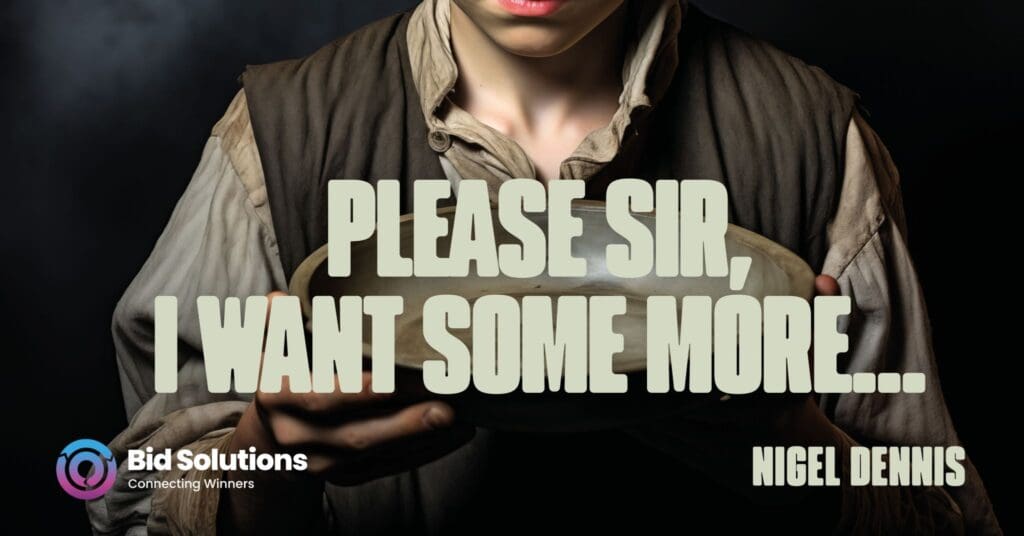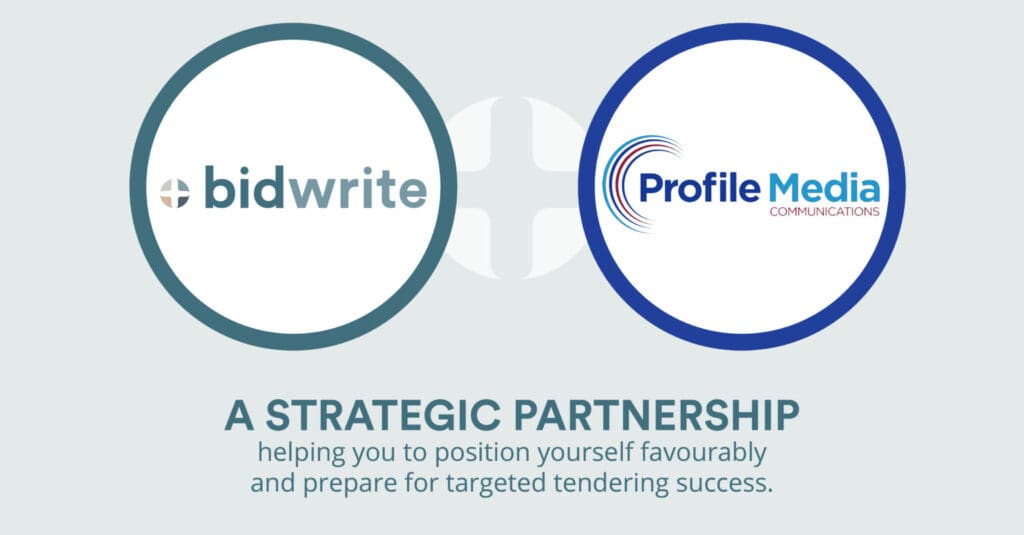An AI-generated image based on the prompt “happy man in a suit giving a wedding speech with artificial intelligence technology imitating his soul”.
What does generative AI mean for bidding?
I’ve been a professional bid writer for three decades. Like many others in my profession, I’m trying to wrap my head around generative AI and what it might mean for my industry. By generative AI, I mean all the clever stuff that sits behind ChatGPT and the like.
Oh, and before you ask, I actually wrote this myself, sitting in a café near my home in Melbourne! But of course, I could have asked ChatGPT to do it for me, or at least have a go.
As a Principal Consultant at BidWrite, I feel a professional responsibility to understand this powerful technology. I feel the need to embrace it, rather than run from it. I sense enormous benefits to our profession through using technology to help us pull content together with ever increasing efficiency and accuracy.
But as with any new technology, I have questions. How might generative AI fit into the world of bidding? What will it mean for bid writers around the world in the immediate future? And looking further ahead, what will we humans continue to do and what will we be able to safely offload to machines?
A personal opportunity to explore AI
These hard questions unexpectedly came to a head when preparing for my beautiful eldest daughter’s recent marriage. After months of planning, the sun blessed a wonderful day filled with laughter, love and lots of people with a myriad of different connections, shared experiences and backstories.
As father of the bride, one of my many roles was to say a few words. Now I had actually been thinking about this moment ever since my daughter brightened up the world 28 years ago.
Back in March, I woke up one night and knew what I wanted to say. I remember looking into my newborn’s eyes thinking, ‘Hello little lady. I wonder who you are, who you’ll become, and whether you’ll find someone to love?’ So I started my speech with that, followed by a few of life’s little stories and experiences we’ve shared along the way. And if I do say so myself, my speech went well – eliciting a few giggles and the occasional tear. Go me!
So what’s this got to do with generative AI?
Out of sheer curiosity, while penning my father-of-the-bride speech I also asked ChatGPT to write me its version. I prompted it to write a speech of five minutes’ duration, reference the fact that our family moved to Australia from the UK and a few other things. What transpired was ChatGPT’s best guess at what a human might want to say in my situation. Remember, ChatGPT doesn’t actually know, or care about me. It uses mind-blowingly complex algorithms to assemble words in the most likely sequence, based on the information at its disposal. In ChatGPT’s case, that’s the internet.
What was interesting was that the script was well informed by what should be in such a speech. It was nicely structured, clearly written, the right length and even had <<insert name>> in all the right places.
But the AI version lacked soul!
It lacked the colour that only this small group of humans brought together by this wedding could understand. It lacked the intimate stories. It lacked the local insight. It lacked context. But most of all, it lacked emotion.
And while the technology will get better with time, and perhaps I could have tried harder with my prompts, I feel this little story encapsulates how humans and machines might work together in the future world of bid writing.
I see massive efficiency gains in researching, structuring and sourcing content, which is exactly the type of labour-intensive work that professionally trained bid writers don’t like doing, but which machines eat for breakfast (no café pun intended). And they’ll never get tired of doing it.
But adding soul? Well, that’s a whole other ball game which I think is going to be human territory for a while to come. It’s not computers, but humans who bring our bids to life. Humans add insight and context, innovative thinking and creative problem solving – the very things that transform generic bids to bespoke ones, and losing bids to winning ones.
Embracing, not replacing
So as BidWrite embraces a generative AI future with its soon-to-be-released BidWriteGPT bid response model, I am clear on, and comfortable with, how humans and machines can work side by side – at least for now.
Let’s get machines to do the grunt work and leave the soul to us!
RELATED BLOG: The Basics of Bidding with Generative AI







